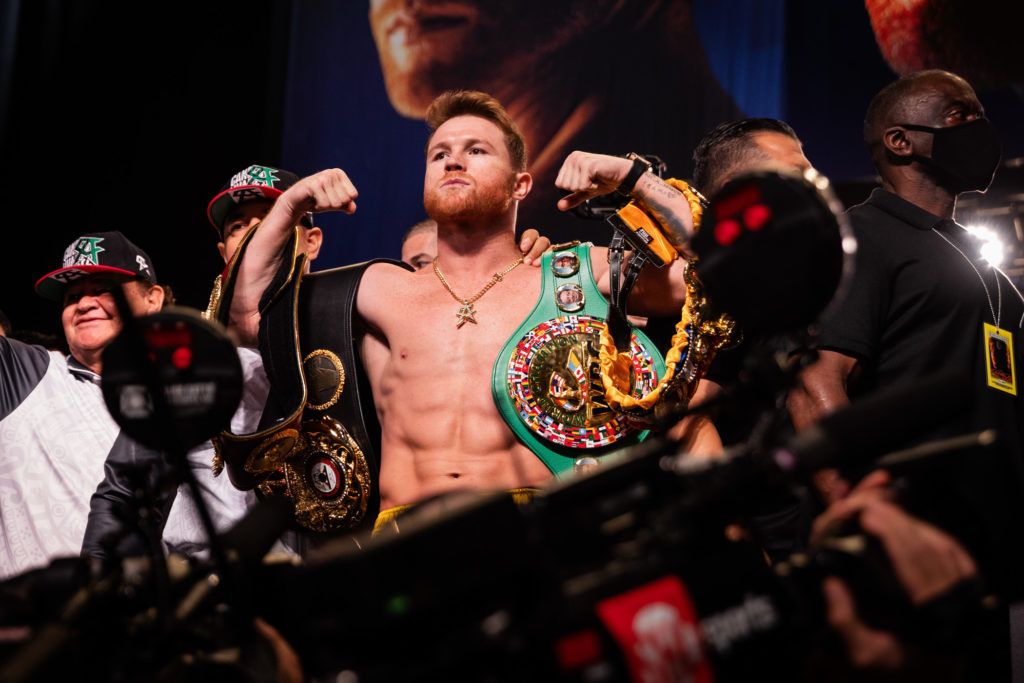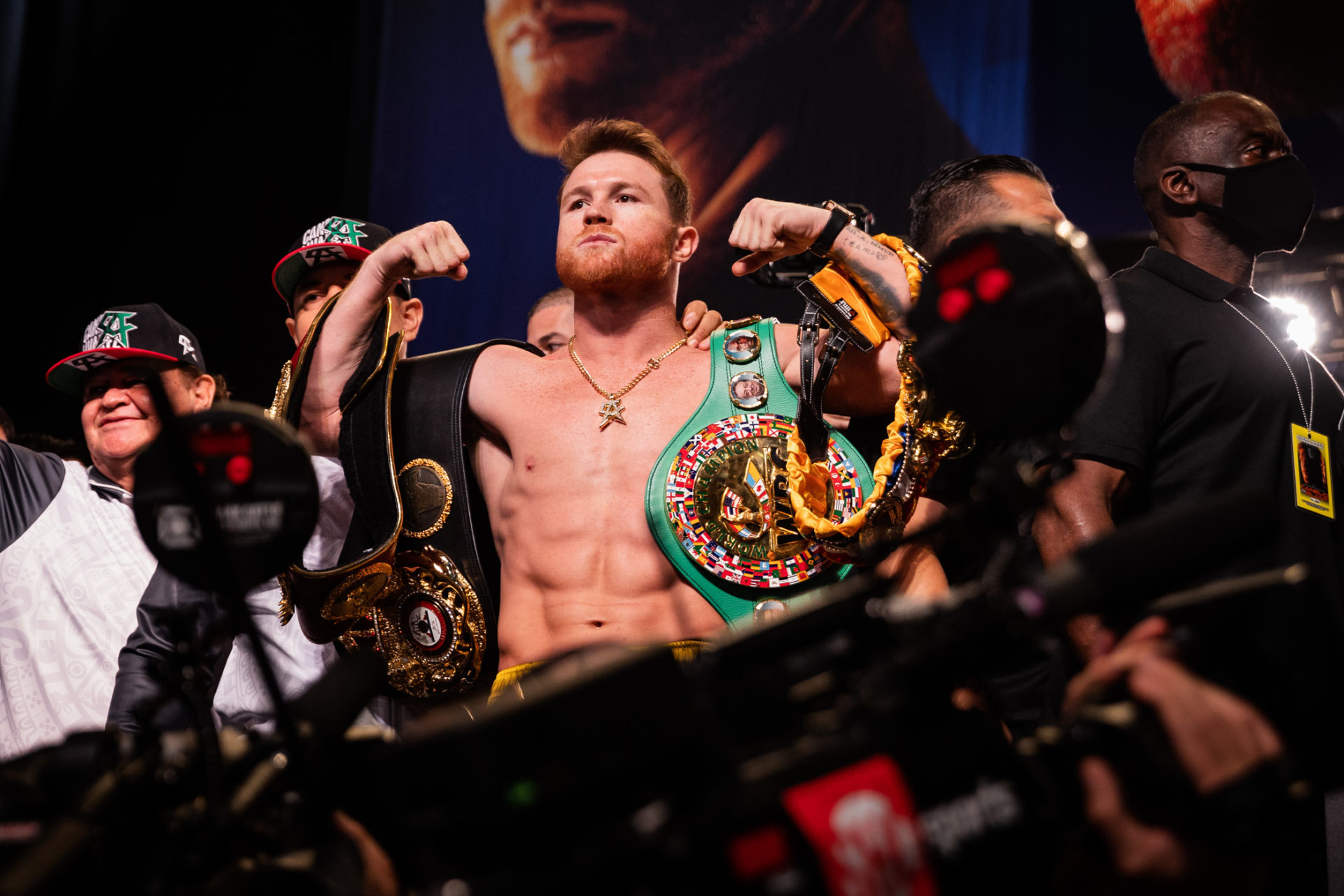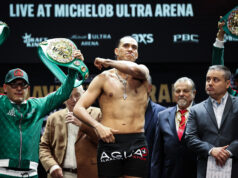
By Norm Frauenheim–
Canelo Alvarez is fighting for Mexicans, but not against Mexicans.
That, at least, was the message he intended this week during a media workout for his approaching date with Gennadiy Golovkin on Sept. 17 in a third fight.
“I don’t want to fight Mexicans,’’ Canelo said. “I represent Mexico.’’
The comment to USA Today at his training camp in San Diego generated questions, if not exasperation, especially among fans who might be reaching into their closets to dust off old caps with the GGG logo done in Mexico’s green-white-and-red colors.
Canelo was responding to a question about whether he would fight fellow Mexican Gilberto “Zurdo’’ Ramirez if Ramirez beat cruiserweight champion Dmitry Bivol. On the scale of tough questions, this one wasn’t intended to be confrontational. It was a softball.
After all, Bivol beat Canelo. If Ramirez can do what Canelo could not, why not go straight to Ramirez in a fight that would be a Mexican blockbuster? It’s simple. Sensible. It also would be a further step toward an initial measure of redemption for Canelo after his stunning May loss to Bivol. He could beat the man who beat him.
What’s more, this is boxing. Not politics. It’s not as if Canelo is running for office. He’s only trying to get back into the pound-for-pound debate. The road back begins with an interesting fight against a bitter rival in a second rematch that could restore the historical momentum he had before the Bivol defeat.
He made the comment, of course, simply because he can. Follow the money. In the boxing business, that means follow Canelo. His minimum wage against Bivol was $15 million, plus a reported 70 percent of pay-per-view sales. He’s the draw, undisputed in every way. That figures to continue, especially if he’s able to make a statement with a definitive victory over GGG. Betting odds suggest that will happen.
Canelo is favored, minus-600, which puts his probability of victory at 85.5 percent. That’s one-sided enough to think that a knockout is likely. For Canelo, a stoppage is almost mandatory.
It would serve as the final punctuation to the skepticism that has circulated for years about the first two fights.
The first bout at middleweight was judged a split draw in September 2017. A year later, the second bout, also at middleweight, was judged to be a Canelo victory by the narrowest of margins. He won a majority decision.
But there was no end to the debate. It has raged on and at a level that forced a third fight. For whatever reason, the third is way past its due date. Still, it’s interesting, because the final say-so goes to the victor.
On paper, Canelo has all the advantages. At 32, he’s eight-years younger than the 40-year old GGG. He’s at his most comfortable weight, 168-pounds. GGG is moving up the scale. All the elements for Canelo to make a definitive statement are in place.
But he’s complicated it with his comments about not wanting to fight a fellow Mexican. Those words could create additional pressure. Suddenly, Canelo has a lot to prove. To himself. And to his fans.
He’s fighting to put some distance between himself and the Bivol loss. He’s also fighting an old rival, one who created his own niche among Mexican-American fans in Southern California before his first bout with Canelo.
In much of the pre-fight hype, GGG looks and sounds comfortable about his role.
“Many Mexicans love me and nobody in Kazakhstan loves Canelo,” GGG, a Kazak living in southern California, said a couple of weeks ago.
He has little to lose. He knows he’s close to retirement, and he’s said so. An old warhorse, he still knows his way around the ring. It’s not clear how Canelo will react in his first fight after a one-sided loss to Bivol.
A tentative Canelo creates opportunities for GGG.
So, too, does a careless Canelo, whose recent comments create a potential distraction, one he can’t afford at a moment when he’s fighting to retain his pound-for-pound relevancy and his pay-per-view marketability.










